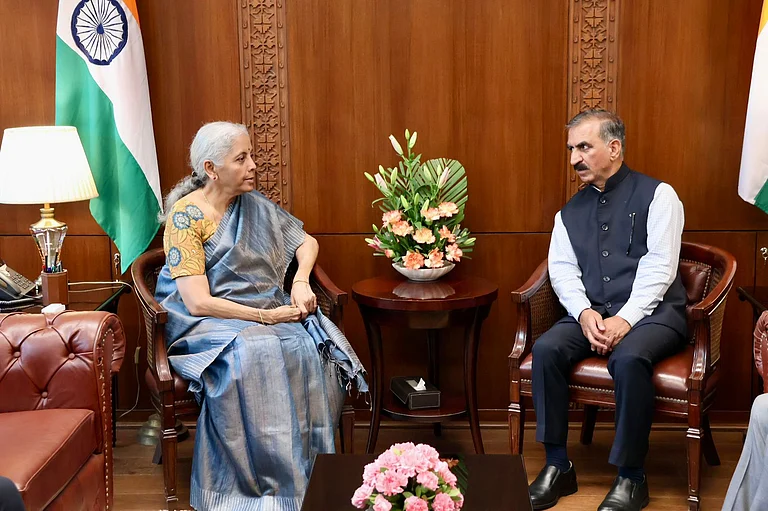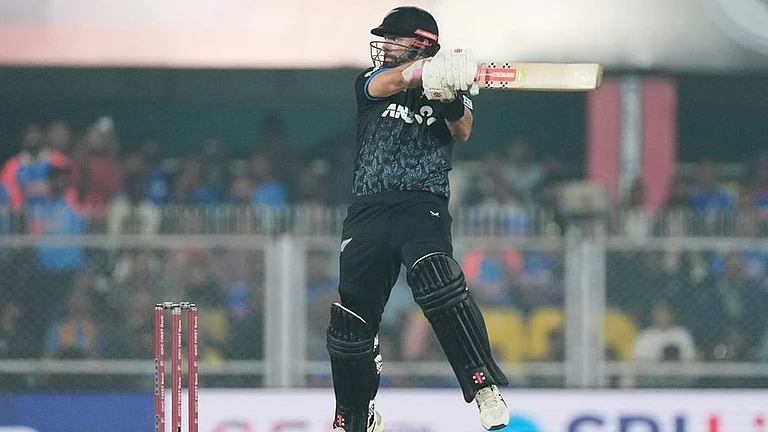With IVF clinics mushrooming across every nook and corner of Indian cities, India seems to have finally embraced the biological reality of pregnancy challenges and perfect normalcy around alternative reproductive methods. Birth is no longer the sole encumbrance of mothers, it has become a common and widely resorted method to reproduce using medically supervised technologies where biological birthing is not possible.
Now, surrogacy of course is the most prevalent technique of assisted reproduction in India since the time of the Mahabharata. Numerous Bollywood flicks be it “Chori Chori Chupke Chupke” in the 90s or the recent “Mimi” have encapsulated the nuanced landscape of surrogacy in India. In this context, one may well presume surrogacy to be a well-established and commonplace practice. Unfortunately, it still isn’t entirely. Surrogacy as a practice continues to be shrouded in taboo and misinformation and a primary reason behind this is the absence of legal frameworks for a prolonged period. Ironically, when India finally codified the laws on surrogacy, it left more grounds uncovered than filled.
How does the law define surrogacy?
Surrogacy is a legal arrangement wherein a woman carries and gives birth to a child for another couple with the intention of handing over the child to the couple after birth and not claiming any parental rights.
Is surrogacy legal in India?
Yes and no. To elaborate on this, let’s first understand how surrogacy takes place. Surrogacy is a method of assisted reproduction, frequently resorted to by couples who are unable to conceive naturally. Surrogacy can be of two kinds; gestational and traditional. In the former method, the intending mother’s eggs are fertilised with the intending father’s sperm in a laboratory and then inseminated into the surrogate’s womb.
In the traditional method, the surrogate doubles up as the egg donor as well as the carrier of the foetus through the entire pregnancy term. Now these methods have emerged as a boon in the lives of several childless couples. Parallelly, many women have been known to sign up as surrogate mothers in lieu of monetary incentives. This practice persisted in India for a very long time in a legal vacuum until 2021 when the Surrogacy Regulation Act, 2021 was passed. According to this Act, surrogacy is legal as long as it is an altruistic arrangement and no transaction is made against it.
How have the surrogacy laws evolved in India?
India first had a tryst with surrogacy regulation in 2005 when the Indian Council of Medical Research (ICMR) came up with a set of guidelines on the regulation of assisted reproductive clinics. While these guidelines laid down certain strictures for such clinics, they did not overtly comment on commercial surrogacy. Thereafter, in their 228th report, the Law Commission of India recommended a ban on the practice of commercial surrogacy in the light of widespread exploitation of surrogates by intending couples, especially foreigners and even miscreants and traffickers. This to a large extent was prompted by two landmark judgments by the Supreme Court of India.
- Baby Manji Yamada vs. Union of India (2008) : Here, a Japanese couple had a baby through a surrogate in India and later got divorced. Post this, the mother refused to take custody of the child while the father was unable to obtain a visa to collect the child. In the absence of regulations, the legal status of the child and the obligations of a surrogate were called into question. The Supreme Court granted the right of entry to the father but emphasised the need for a proper legal framework with regard to surrogacy.
- Jan Balaz vs. Anand Municipality (2009) : In this case, a German resident had a baby through surrogacy in India but was stopped from leaving the country with the child by the authorities. The Court eventually granted them permission to leave the country but highlighted the numerous pitfalls of commercial surrogacy in the absence of due regulations.
Fuelled by several more such cases, the Ministry of Home Affairs in 2015 issued a circular banning foreign nationals from availing of commercial surrogacy in India. Following this, the Parliament first introduced the Surrogacy Regulation Bill in 2019 which was later passed in 2021 with certain changes.
What does the Surrogacy (Regulation) Act, 2021 say?
The crux of this Act is that the only legally permissible form of surrogacy in India is altruistic voluntary surrogacy between eligible parties. Any form of surrogacy which involves any commercial transaction will be deemed a punishable offence. Here, eligible parties include intending couples and surrogates who have to comply with certain conditions.
Only married Indian couples within the age group of 25-55 years of age without any living child can opt to become parents through surrogacy. Further, they will have to obtain an eligibility certificate from the District Medical Board specifying their inability to conceive biologically.
Parallelly, only married women between 25-35 years of age who are close relatives of the intending couple, with a child of her own can become a surrogate. Further, they’ll have to obtain a certificate of physical fitness from the District Medical Board.
The Act further delineates that no monetary sum, except an insurance coverage of 16 months and all medical expenses can be paid to the surrogate. Any violation of this act will result in imprisonment of up to 10 years and a fine amounting to Rs 10 Lakhs. Moreover, according to this Act, all clinics performing surrogacy must be registered and they cannot store, sell, or import human embryos or gametes for surrogacy.
The Assisted Reproductive Technology (Regulation) Act, 2021 (ART)
Alongside the Surrogacy Act, the Parliament also passed the ART Act in 2021 to clearly lay down the various techniques that may be legally adopted for the purpose of surrogacy. ART includes In-Vitro Fertilisation (IVF), Sperm Donation, and even gestational surrogacy. All clinics undertaking any of these procedures must adhere to the provisions of the ART Act.
According to this Act;
- all ART clinics must be registered and their registration will be subject to renewals every five years.
- ART clinics can store semen and eggs of men and women within a specified age group.
- The sperm of one donor cannot be given to more than one couple.
- Female donors must be married with a child of at least three years of age.
- Female donors are prohibited from donating more than seven eggs in their lifetime.
- ART clinics must not advertise their services in any form.
- ART clinics must not offer any sex-selective services.
How have the laws fared in regulating the surrogacy processes in India?
Previously, surrogacy was bound by contractual agreements between the parties and undoubtedly, left room for a lot of exploitation and disputes, jeopardising the children’s well-being and safety. In that light, these two laws are a welcome relief.
However, these laws have a rather myopic rubric which ends up causing more harm than good. Instead of strengthening the contractual parameters of commercial surrogacy, it altogether does away with the practice. If we look at the practicality, finding a close relative who would be willing to carry through the laborious process of pregnancy is likely to be extremely difficult for every intending couple.
Moreover, the diktats on the eligibility of the intending couple, leave out same-sex couples, single parents, widows, divorcees etc. Doesn’t this adversely impact their equal right to becoming parents as may be derived from Article 14 of the Indian Constitution? Unregulated commercial surrogacy did stir up several controversies but undoing the practice does not solve the problem at hand. Commercial surrogacy has been a conscious choice of many women for several years and this blanket ban not only impacts them financially but also infringes upon their reproductive choice, a fundamental right guaranteed under Article 21 of the Indian Constitution as observed by the Supreme Court in its 2017 judgment in K.S. Puttaswamy vs. Union of India and Ors.
Yashaswini Basu is Nyaaya’s Outreach Lead, managing strategic partnerships and collaborative content

























